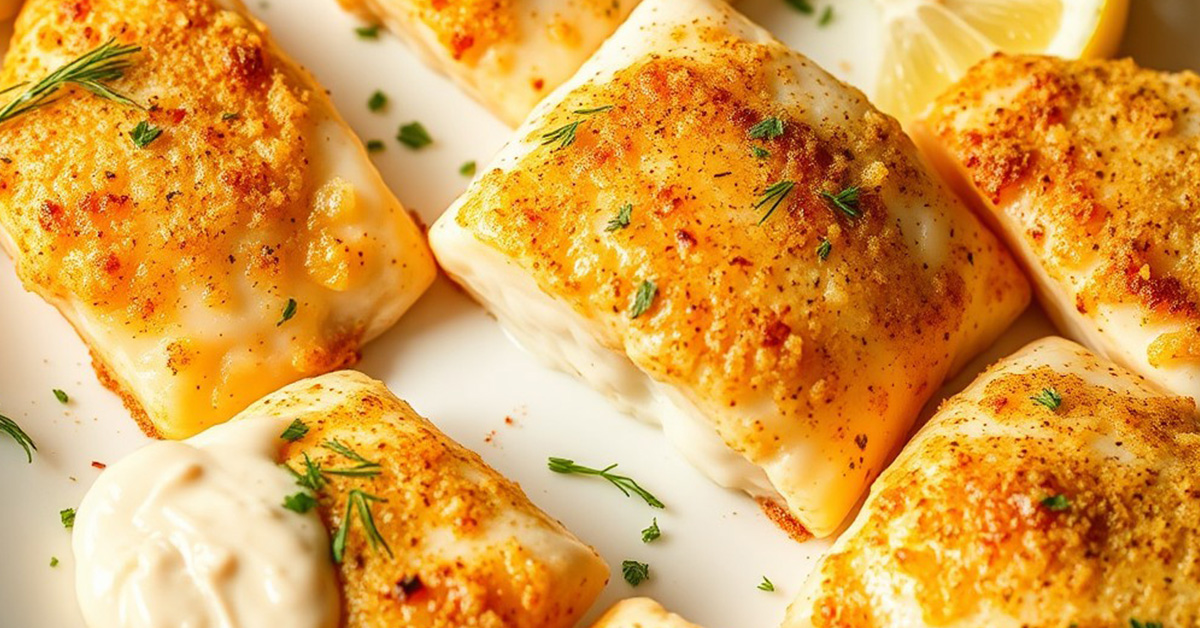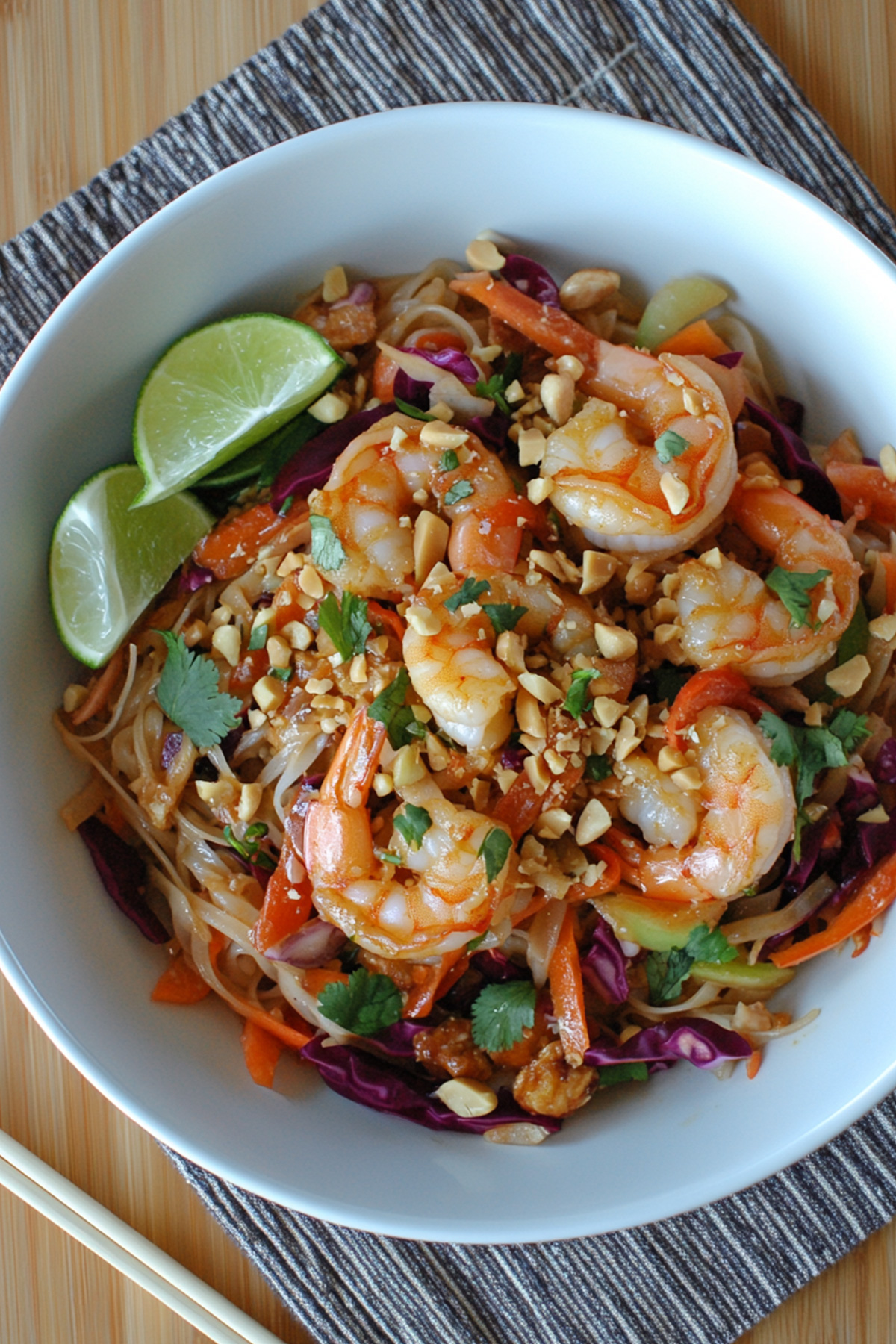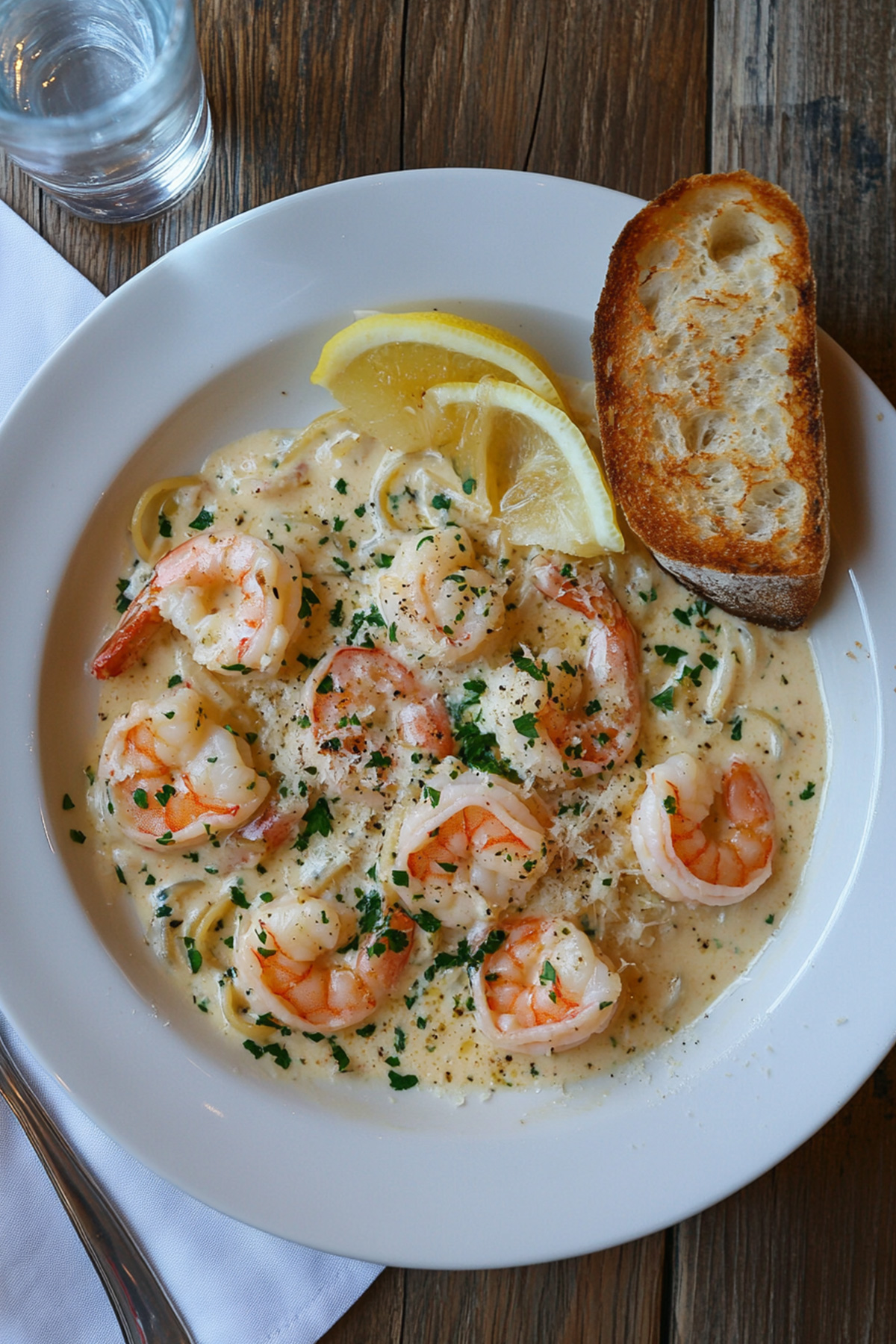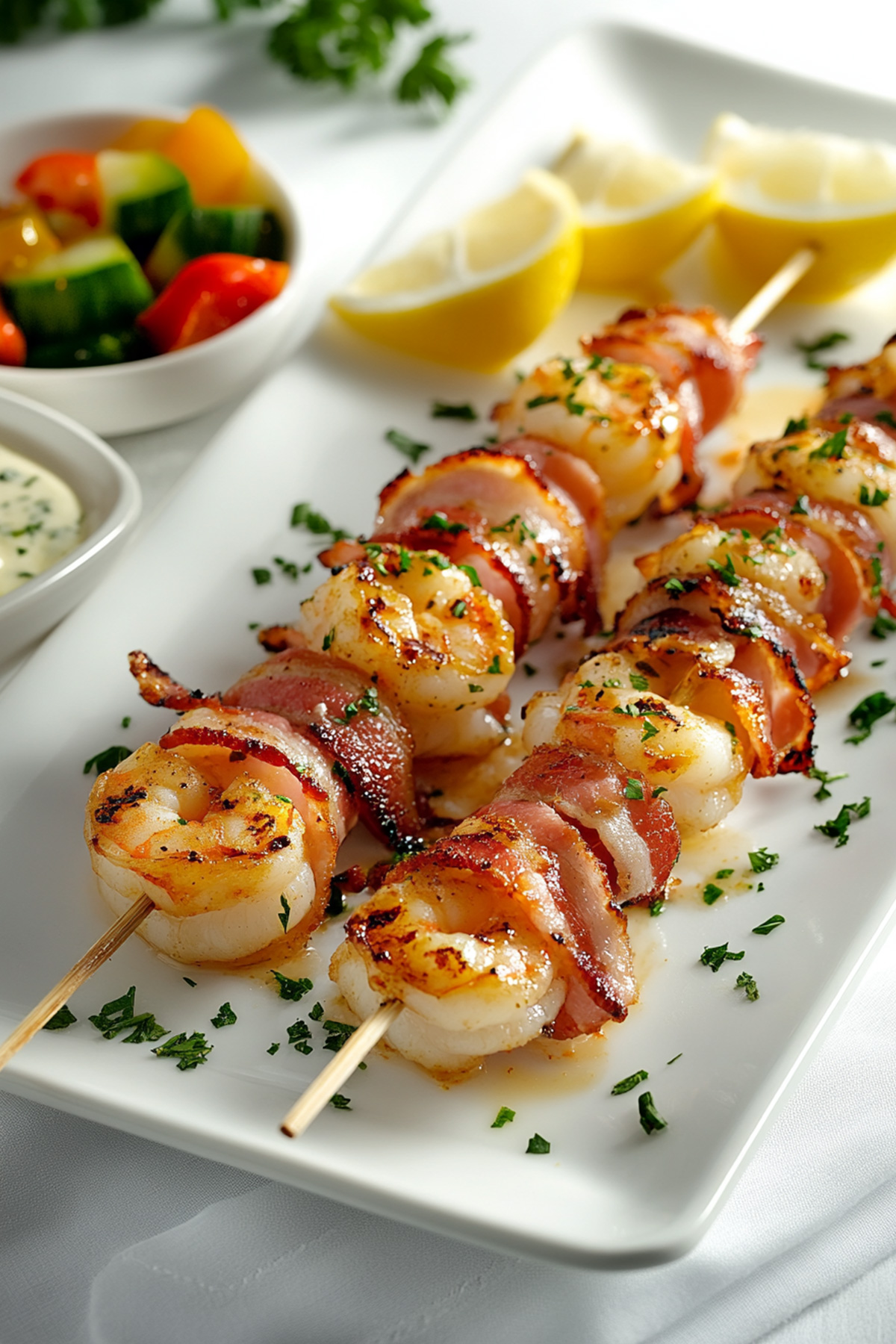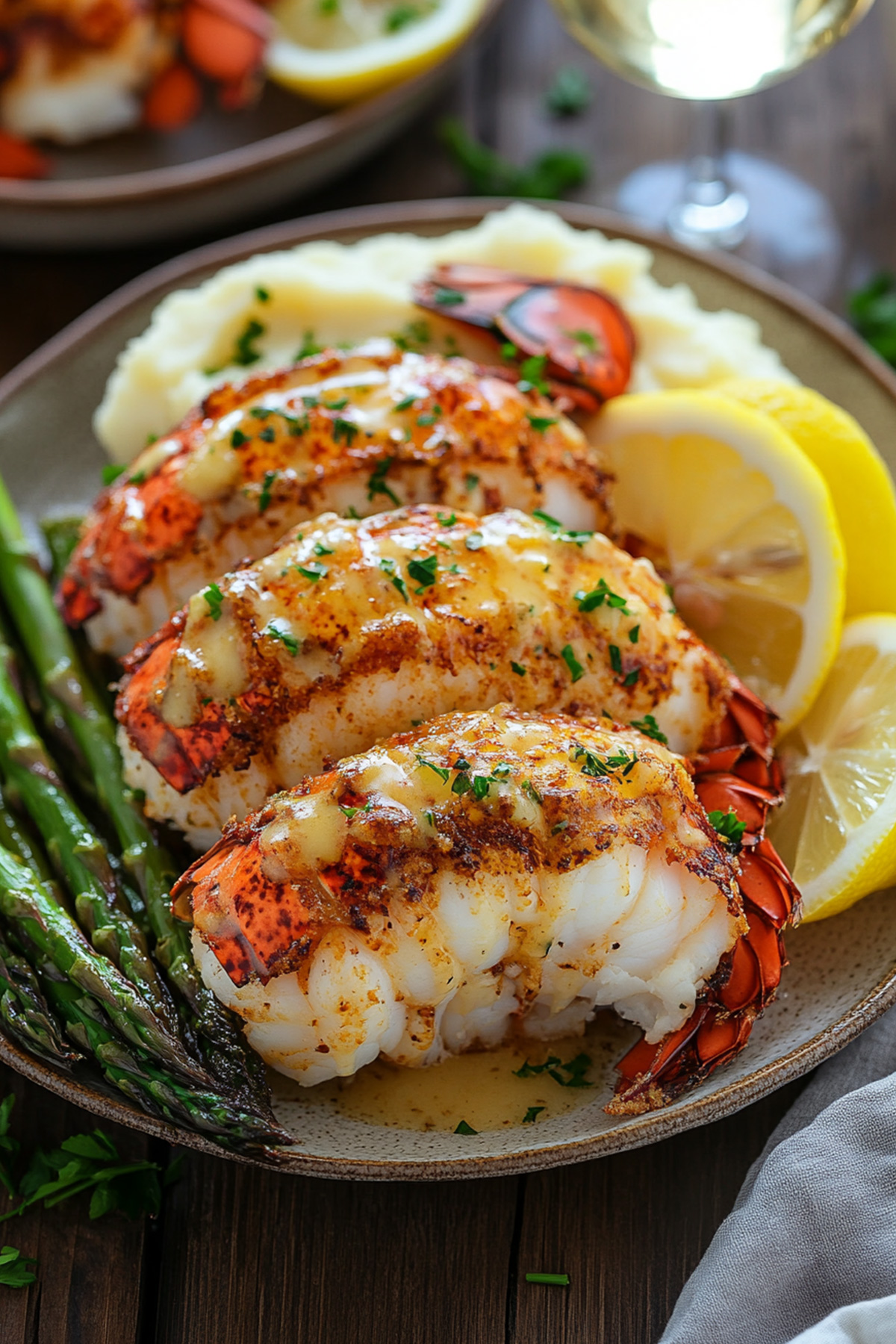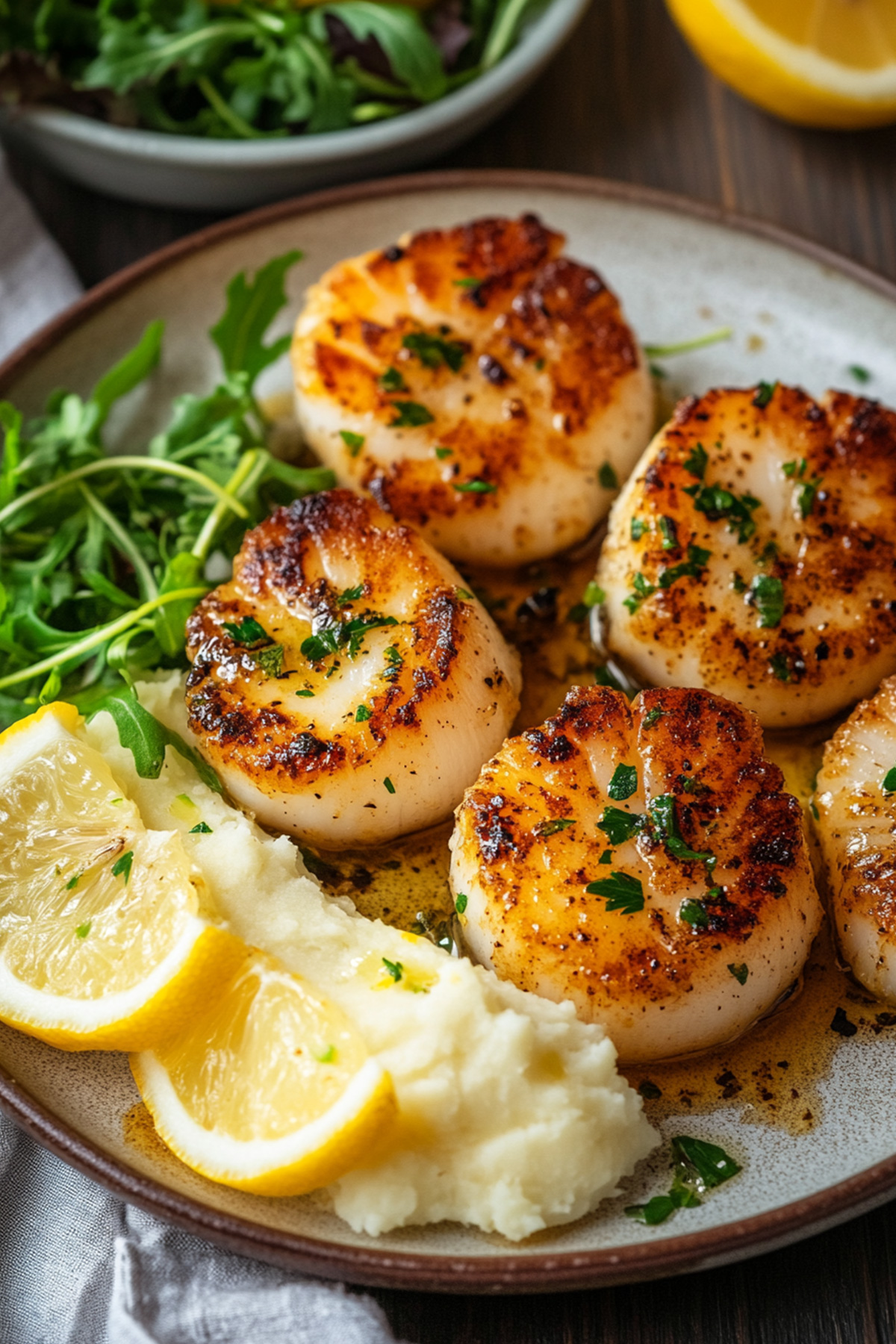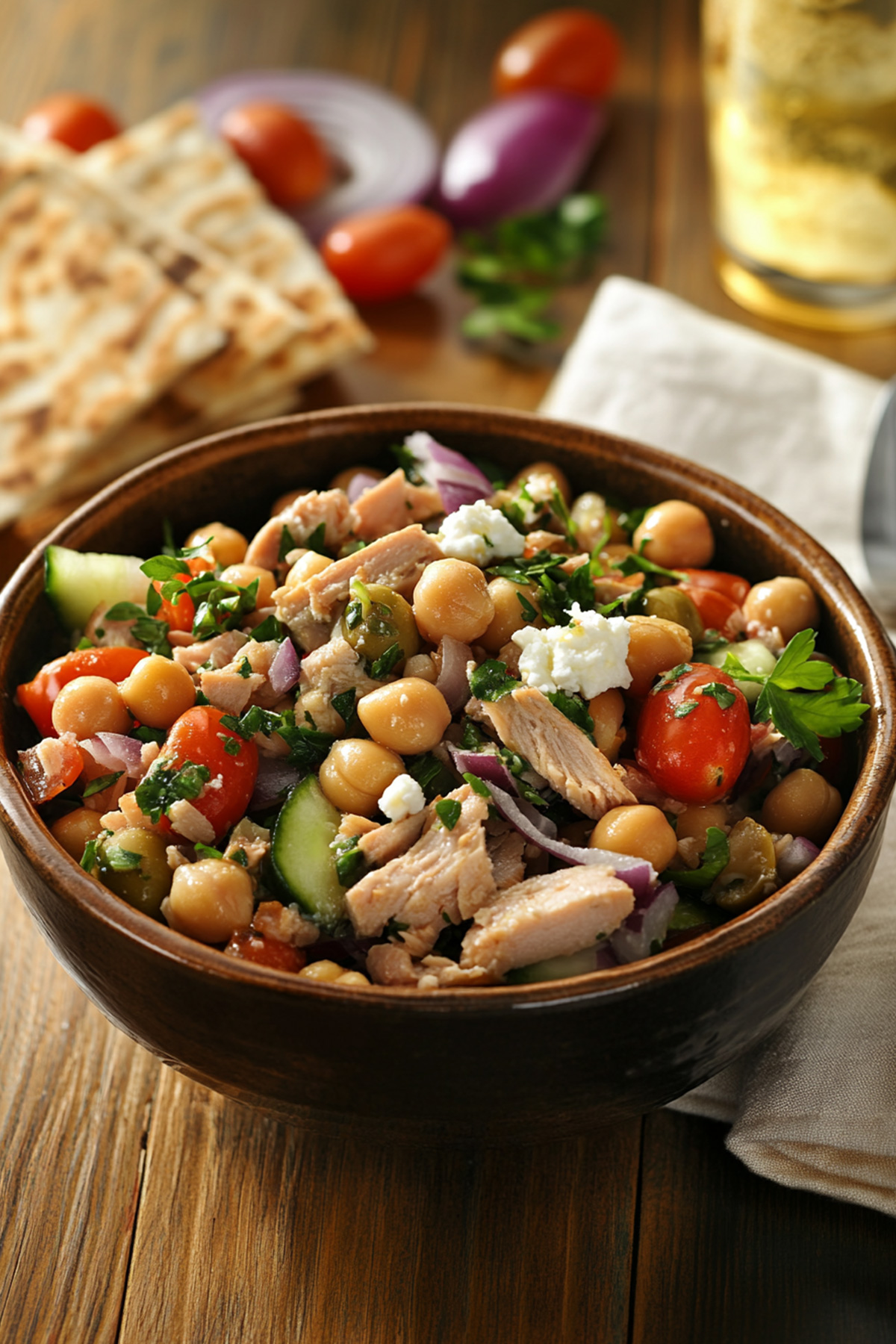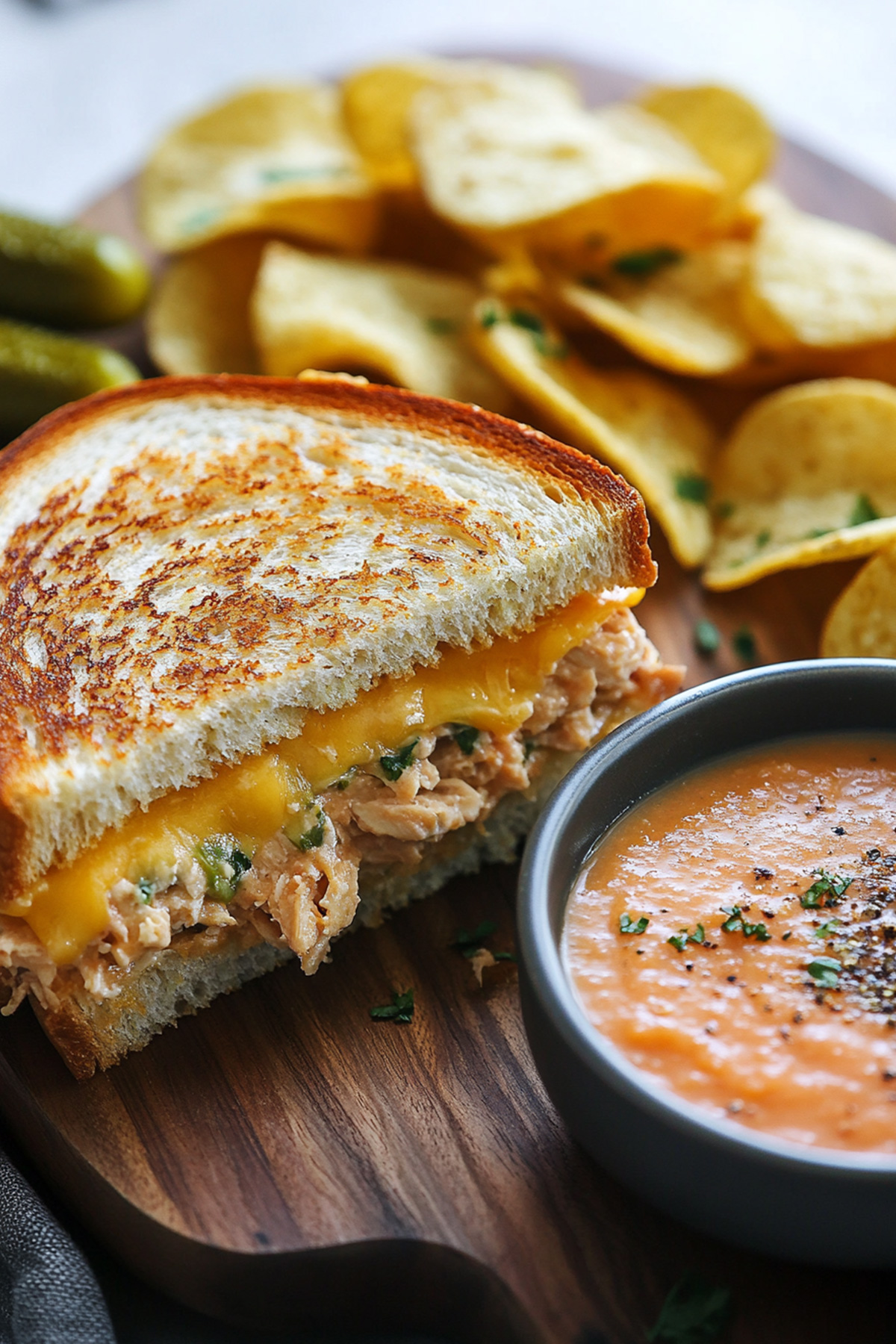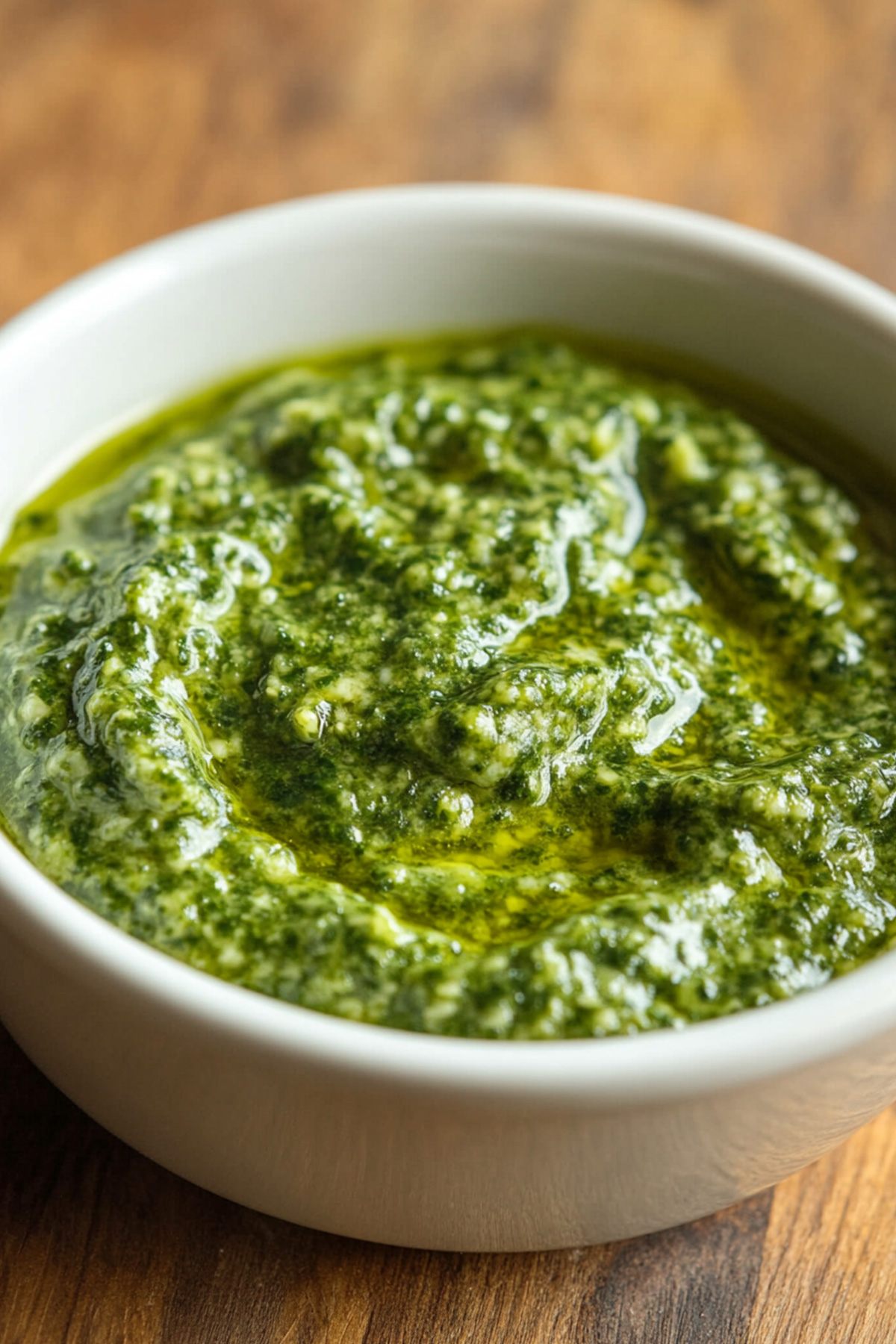Disclosure: As an Amazon Associate and participant in other affiliate programs, we earn from qualifying purchases. We only recommend products we believe will provide value to our readers.
Baked fish with mayo is a delicious and easy way to prepare a flavorful dinner. You’ll love how this simple technique transforms ordinary fish into a mouthwatering meal that’s sure to impress. By using mayonnaise, you can create a moist and tender fish dish that’s packed with flavor and has a crispy exterior.
In this guide, you’ll discover why mayonnaise works so well for baking fish and learn about the best types of fish to use. You’ll also find a step-by-step process to make the perfect mayo baked fish, along with flavor variations and serving suggestions. Plus, you’ll get tips on avoiding common mistakes and learn about the health benefits of this tasty dish.
Table of Contents
What is Baked Fish with Mayo?
Baked fish with mayo is a simple yet delicious dish that transforms ordinary fish into a mouthwatering meal. This cooking method involves coating fish filets with a layer of mayonnaise before baking them in the oven. The result is a tender, moist, and flavorful fish with a crispy exterior that’s sure to please your taste buds.
The mayo acts as a protective barrier, sealing in the fish’s natural moisture and preventing it from drying out during the baking process. It also helps to infuse the fish with additional flavors, as the mayonnaise is often mixed with herbs, spices, and other seasonings.
One popular variation of this dish includes adding a crunchy topping, such as panko breadcrumbs or crushed crackers, over the mayo layer. This creates a delightful contrast in textures, with the crispy exterior complementing the soft, flaky fish underneath.
Baked fish with mayo is incredibly versatile, allowing you to use various types of fish and experiment with different flavor combinations. Whether you’re using haddock, tilapia, cod, or even sea bass, this cooking method ensures a delicious outcome every time.
Not only is baked fish with mayo easy to prepare, but it’s also a healthier alternative to fried fish. It requires minimal oil and still delivers a satisfying, crispy texture. This makes it an excellent choice for those looking for a nutritious and tasty dinner option.
Why Use Mayonnaise on Fish?
Using mayonnaise on fish has become a popular cooking technique, and for good reason. When you apply mayo to your fish before baking, it acts as a protective barrier, sealing in moisture and preventing the fish from drying out. This results in a tender and juicy baked fish that’s full of flavor.
Mayo also has a unique ability to stick to the fish better than other fats like oil or butter. This means it won’t melt off during cooking, ensuring that your fish stays coated throughout the baking process. The egg yolks in mayonnaise contribute to enhanced browning, giving your baked fish with mayo a beautiful golden color.
Another advantage of using mayo on fish is its versatility as a flavor carrier. You can easily mix herbs, spices, or other seasonings into the mayonnaise before spreading it on the fish. This allows you to create various flavor profiles for your mayo baked fish, from Cajun-inspired to chipotle-infused.
Surprisingly, you won’t taste the mayonnaise itself in the final dish. Instead, it works behind the scenes to keep your fish moist and flavorful. Whether you’re baking tilapia, cod, or any other mild white fish, using mayonnaise can help you achieve restaurant-quality results at home.
Best Types of Fish for Baking with Mayo
When it comes to baking fish with mayo, you have several excellent options to choose from. Mild, white fish varieties work particularly well with this cooking method. Tilapia is a popular choice due to its delicate flavor and texture, making it perfect for mayo baked fish recipes.
Another great option is haddock, which has a slightly sweet taste and flakes beautifully when baked. If you’re looking for a firmer fish, consider using Mahi Mahi. Its thick, meaty texture holds up well to baking and pairs wonderfully with the mayo coating.
For those who prefer a more robust flavor, salmon is an excellent choice. The rich taste of salmon complements the creamy mayo perfectly, resulting in a delicious and healthy meal. Basa filets and sole are also suitable options, especially if you can find large, plump pieces.
When selecting fish for your mayo baked dish, aim for filets that are about 1/2 inch thick. This thickness ensures that the fish cooks evenly and retains its moisture. Remember, you can use fresh or frozen fish for this recipe. If using frozen, make sure to thaw it thoroughly before baking.
By choosing the right type of fish, you’ll be well on your way to creating a mouthwatering baked fish with mayo that’s sure to impress.

Baked Fish with Mayo
- Total Time: 31 minutes
Ingredients
To create a delicious baked fish with mayo, you’ll need the following key ingredients:
- Fish filets: Choose mild white fish like haddock, basa, or tilapia, about 1/2 inch thick
- Mayonnaise: The star ingredient that keeps your fish moist and flavorful
- Seasonings: A mix of dry mustard, onion powder, garlic powder, and paprika
- Herbs: Dill weed adds a fresh, aromatic touch
- Spices: A dash of cayenne for a subtle kick
- Parmesan cheese: Freshly grated for extra flavor and texture
- Panko breadcrumbs: For a crispy topping (optional)
- Olive oil: A small amount to moisten the breadcrumbs if using
These ingredients work together to create a flavorful coating for your mayo baked fish. The mayonnaise acts as a base, while the seasonings and herbs infuse the dish with delicious flavors. The cheese and breadcrumbs (if used) add a satisfying crunch to the exterior.
Remember, you can adjust the quantities and types of seasonings to suit your taste preferences. This vers.
Instructions
- Thaw your fish filets overnight in the refrigerator and pat them dry with paper towels to remove excess moisture.
- Preheat your oven to 400°F (200°C).
- Season the fish filets with your favorite fish rub or seasoning blend, allowing them to come to room temperature.
- In a small bowl, mix mayonnaise, grated Parmesan cheese, and garlic powder to create the mayo mixture for your baked fish.
- Use a rubber spatula to spread an even layer of the mayo mixture over each fish filet.
- Carefully transfer the coated fish to a baking dish, ensuring they’re in a single layer.
- Sprinkle some freshly ground black pepper over the mayo-coated fish for added flavor.
- Bake the fish in the upper half of the oven for about 12 minutes, or until it starts to feel firm when pressed with a fork.
- Switch your oven to broil and cook for an additional 3-4 minutes to brown the mayo topping.
- Remove the baked fish with mayo from the oven and let it rest for a few minutes
- If there’s any excess liquid in the dish, gently blot it with a paper towel before serving your delicious mayo baked fish.
- Prep Time: 15 minutes
- Cook Time: 16 minutes
- Category: Seafood
- Method: Baking
Flavor Variations for Mayo Baked Fish
When it comes to baked fish with mayo, you have plenty of options to customize the flavors. One popular choice is to use Old Bay seasoning, which adds a delicious blend of spices to your mayo baked fish. The fiery-red paprika in Old Bay also gives your dish a beautiful color.
If you’re feeling adventurous, try mixing gochujang or wasabi into your mayonnaise for a spicy kick. For a sweeter twist, combine mayo with honey and sweet soy sauce. You can even experiment with unexpected flavors like sour cherry jam for a unique taste experience.
For a teriyaki-inspired baked fish, mix soy sauce, brown sugar, and ginger into your mayo. If you’re a fan of Asian flavors, try adding miso to your mayonnaise for a savory umami boost. For a Mediterranean touch, blend in some garlic powder and fresh herbs.
Don’t forget about cheese! Adding grated Parmesan or shredded cheese to your mayo mixture can create a deliciously crispy crust on your baked fish. You can also try using flavored mayonnaise, such as chipotle or lemon-herb, as a base for your coating.
Remember, the key to great mayo baked fish is experimentation. Feel free to mix and match different seasonings and ingredients to find your perfect flavor combination.
Read also: Baked Black Cod Fish Recipe
How to Serve Baked Fish with Mayo
Your baked fish with mayo is a star on its own, but pairing it with the right sides can elevate your meal to new heights. For a warm vegetable option, consider serving peas with dried dill and butter or grilled asparagus. These sides complement the flavors of the mayo baked fish while adding variety to your plate.
If you’re looking for a refreshing salad to accompany your dish, try a watermelon and jicama salad with a honey vinaigrette. This combination works particularly well for summer meals featuring cool main courses like salmon. For a more adventurous option, consider a dragon fruit and avocado salad, which offers an unexpected twist to your meal.
To add a tropical flair, create a colorful salsa using equal parts of kiwi, mango, strawberries, dragon fruit, and avocado, all finely diced. This vibrant side dish not only enhances the visual appeal of your baked fish with mayo but also introduces a delightful contrast in flavors and textures.
Remember, when serving any fish dish, hot or cold, always include fresh lemon wedges. The bright citrus notes help to enhance the flavors of your mayo baked fish. For a final touch, sprinkle some fresh chives or parsley over the top to add a pop of color and freshness to your plate.
Common Mistakes to Avoid When Baking Fish with Mayo
When preparing baked fish with mayo, it’s essential to avoid common pitfalls that can affect the dish’s quality. One mistake is using cold ingredients straight from the refrigerator. To ensure the best results, allow your fish and mayonnaise to reach room temperature before cooking. This helps the mayo spread evenly and promotes even cooking.
Another error to avoid is not patting the fish dry before applying the mayo mixture. Excess moisture can make the coating soggy and prevent it from crisping up nicely. Always use paper towels to remove any excess water from the fish filets.
Overmixing the mayonnaise with other ingredients can also lead to problems. When combining mayo with seasonings or cheese, mix gently to maintain the creamy texture. Overmixing can cause the mayo to separate, resulting in a less appealing coating.
Using too much mayonnaise is a common mistake that can make your baked fish greasy. Apply a thin, even layer of the mayo mixture to the fish, just enough to coat it without excess. This ensures a crispy exterior while keeping the fish moist.
Lastly, avoid overcooking your mayo baked fish. Keep a close eye on it during baking and broiling to prevent drying out the fish or burning the mayo topping. Following these tips will help you create a delicious baked fish with mayo every time.
Health Benefits of Mayo Baked Fish
Baked fish with mayo not only tastes delicious but also offers several health benefits. This cooking method helps retain moisture in the fish, ensuring it stays tender and juicy. The mayonnaise acts as a protective barrier, locking in the fish’s natural oils and nutrients during the baking process.
One of the main advantages of mayo baked fish is its high protein content. A single serving provides about 49 grams of protein, which is 88% of your daily value. Protein is essential for building and repairing tissues, making enzymes and hormones, and supporting overall health. [Reference]
This dish is also an excellent source of vitamin D, offering 160% of your daily value per serving. Vitamin D plays a crucial role in calcium absorption, bone health, and immune function. Additionally, mayo baked fish contains significant amounts of potassium, providing 16% of your daily value. Potassium is vital for heart health, muscle function, and maintaining proper fluid balance in the body. [Reference]
The omega-3 fatty acids found in fish, particularly DHA and EPA, are preserved when baking with mayonnaise. These healthy fats have a positive impact on heart health, brain function, and inflammation reduction. By choosing this cooking method, you can enjoy a flavorful meal while reaping the nutritional benefits of fish. [Reference]
You may also like: Baked Fish and Rice Recipe
FAQs About Baking Fish with Mayo
Can I use frozen fish for mayo baked fish?
Yes, you can use frozen fish. Just make sure to thaw it completely and pat it dry before applying the mayo mixture. This helps the coating stick better and ensures even cooking. Read more about this in our article: How to Bake Frozen Fish
How long should I bake fish with mayo?
Typically, bake fish with mayo for 20-25 minutes at 400°F (200°C). However, cooking time may vary depending on the thickness of your fish filets. The fish is done when it’s opaque and flakes easily with a fork.
Can I add extra toppings to my mayo baked fish?
Absolutely! Many people enjoy adding Panko breadcrumbs on top of the mayo mixture for extra crunch. You can also experiment with different seasonings or herbs to customize the flavor.
Is mayo baked fish healthy?
Mayo baked fish can be a healthy option. It’s high in protein and omega-3 fatty acids. The mayo helps keep the fish moist without adding excessive calories. To make it even healthier, use a light mayonnaise or Greek yogurt as a substitute.
Conclusion
Baking fish with mayo is a game-changer to create a delicious and easy dinner. This simple technique has a big impact on transforming ordinary fish into a mouthwatering meal that’s sure to impress. By using mayonnaise, you can whip up a moist and tender fish dish that’s packed with flavor and has a crispy exterior. The versatility of this method allows you to experiment with different types of fish and flavor combinations, making it a go-to recipe for any home cook.
Not only is mayo-baked fish tasty, but it also offers several health benefits. It’s a great source of protein and essential nutrients like vitamin D and omega-3 fatty acids. This cooking method helps to keep the fish moist and lock in its natural goodness. Whether you’re a seasoned chef or a kitchen newbie, giving this technique a try is sure to elevate your fish-cooking game and add a new favorite to your recipe collection.

